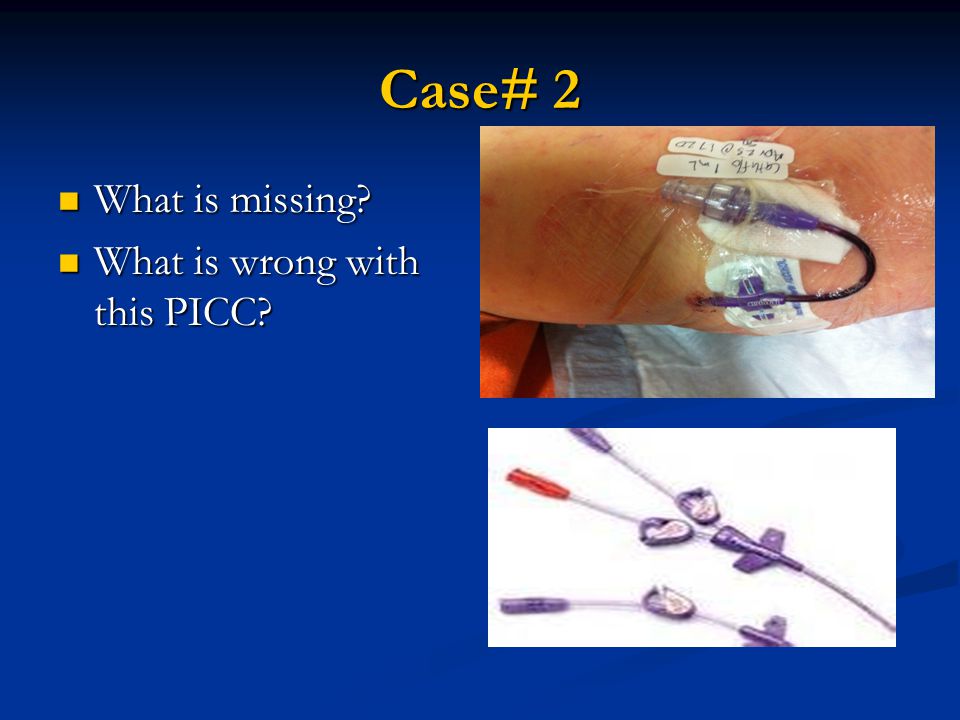Curos caps are designed to protect the ends of certain central venous iv lines such as picc lines for patients receiving long term iv antibiotics central venous catheters in hospitalized patients or infusaports that are accessed to allow cancer patients to receive chemotherapy.
Picc line cap missing.
A picc line or percutaneously inserted central catheter is a medical device that is placed into a vein to allow access to the bloodstream.
She reached under her right arm and said what s poking me.
Picc lines usually have valves and caps at the end to stop air from coming in.
I work night shift and in the morning i took a patient to the bathroom that was not assigned to me.
A picc line gives your doctor access to the large central veins near the heart.
It s generally used to give medications or liquid nutrition.
The picc is used for intermittent dosing of an antibiotic.
The cap should always be closed when the line isn t in use to prevent air from getting inside.
You need long term intravenous therapy.
The steps are the same for a hickman or picc line.
Pronounced pick the line is a type of vascular access device that allows fluids and medications to be given to a patient.
The catheter is non valved.
See additional information and instructions on caring for your hickman or picc catheter.
What is the best solution when you have found the cap off of one lumen of a triple lumen picc.
Air in the line can cause an air embolism a potentially serious condition where air gets into the veins.
Specialties infusion posted may 2 2013.
I saw her picc line and there was no cap on the end of it.
Total parenteral nutrition liquid food and iv liquid may also be given through a picc line.
You may need iv antibiotics germ killing medicine or chemotherapy medicine to treat cancer for weeks or months.
The purpose of the caps is to reduce the risk of the central.
The nurse caring for the patient assessed the picc at the beginning of the shift and everyt.
A picc line requires careful care and monitoring for complications including infection and blood clots.
A picc line can help avoid the pain of frequent needle sticks and reduce the risk of irritation to the smaller veins in your arms.
For this procedure you do not need to wear gloves but your hands must be very sterile.
The cap on the end of each lumen of your catheter needs to be changed once a week.










